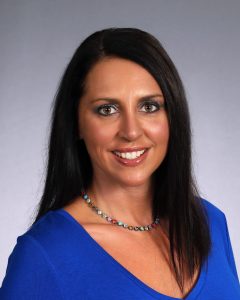How Patients Benefit from Integrative Medicine
 Over the last several years, as more people have embraced a healthier lifestyle, integrative medicine has surged in popularity. Despite that, many patients who would benefit from its scientifically-validated therapies, do not quite understand what the practice involves. At the American Board of Physician Specialties® (ABPS), we welcome the opportunity to educate the public about this emerging specialty. In fact, one of our Member Boards, the American Board of Integrative Medicine® (ABOIM), is the only multi-specialty certifying board that offers integrative medicine certification.
Over the last several years, as more people have embraced a healthier lifestyle, integrative medicine has surged in popularity. Despite that, many patients who would benefit from its scientifically-validated therapies, do not quite understand what the practice involves. At the American Board of Physician Specialties® (ABPS), we welcome the opportunity to educate the public about this emerging specialty. In fact, one of our Member Boards, the American Board of Integrative Medicine® (ABOIM), is the only multi-specialty certifying board that offers integrative medicine certification.
Michelle Thompson, DO, an integrative and lifestyle family medicine physician at the University of Pittsburgh Medical Center and a Diplomate of the ABOIM®, wants more people to understand how turning to integrative medicine can help them improve their health and prevent illness. “There is a distinction between lifestyle medicine and integrative medicine,” she says. “Lifestyle medicine emphasizes things like nutrition, exercise, sleep, stress reduction, and meaningful relationships.
Integrative medicine takes it further by encompassing art therapy, aroma therapy, sound therapy, energy medicine, Reiki, tai chai, yoga, and more. It focuses on self-care and how the environment affects us. Basically, integrative medicine takes into account all aspects of a patient’s life. It emphasizes well care over sick care. Instead of simply relying on a pill as treatment, the integrative medicine practitioner focuses on the root cause of illnesses.”
Good medicine, Dr. Thompson says, should be based on good science, and all of the different integrative modalities are based on sound scientific evidence. For instance, science now shows us that there are more than 100 diseases that can be treated by changing one’s diet. “In the past, we didn’t’ consider this dietary approach to treatment,” she says.
Asked if there was a common thread to integrative medicine treatment, Dr. Thompson said, “I always tell patients that I can’t care more about your health than you do.” To help patients, she educates them. “Really, knowledge is power. I teach them the steps they can take to improve their lives, and when they realize that their health is in their hands, they feel more in control. They know that they now have the appropriate tools they need.”
However, lifestyle and dietary changes are not always easy to implement. So, Dr. Thompson works with her patients to help them incorporate these changes in their lives. As part of her practice, she works with a dietician and participates in community programs that teach patients how to implement healthy-living techniques so that they can take charge of their lives. Patients know that, in addition to applying different treatment modalities, they can also turn to the community and the healthcare system for help.
Dr. Thompson has seen a shift in health care that she attributes to the understanding that it’s much easier and less expensive to prevent disease through lifestyle changes than to treat diseases when they arise. Hypertension, diabetes, migraines, and much more can be improved with dietary and lifestyle changes, she says. The root cause of many diseases is diet and nutrition; next is stress. And a healthier diet, as well as practices like meditation and mindful eating, can be the just the changes patients need to achieve optimal health.
The ABOIM recognizes Dr. Thompson as an exemplary advocate for its goal of helping patients by treating the root causes of health problems and not the symptoms. To learn more about the ABOIM, contact the ABPS today.






